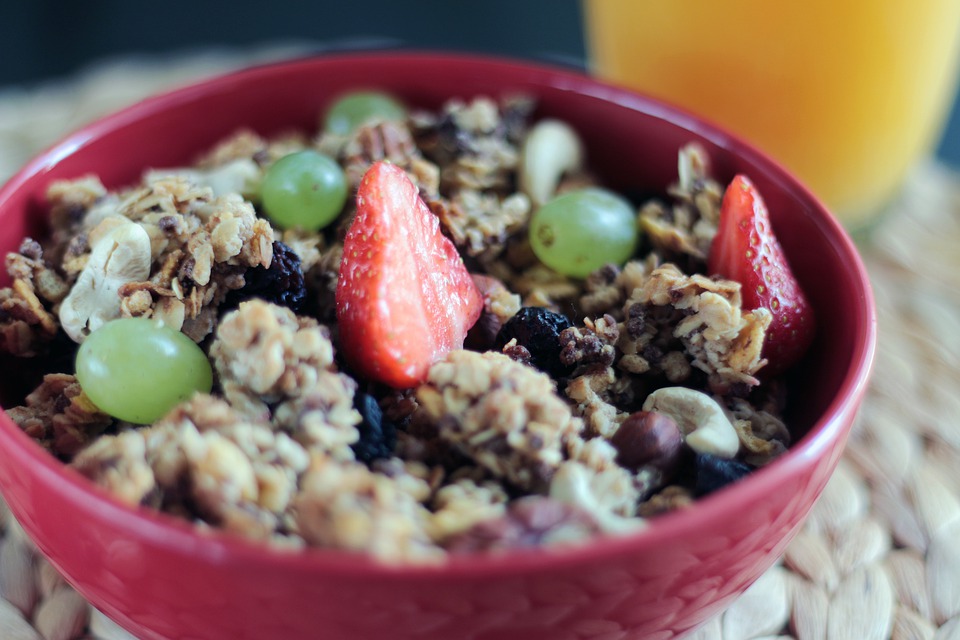Hypothyroidism is the most common thyroid disorder, which occurs when your body doesn’t produce enough thyroid hormone. This can lead to symptoms such as fatigue, weight gain, and memory problems. Not only that, but it also puts you at risk for other medical conditions, including heart disease and osteoporosis. Here are ten foods for thyroid you should eat.
Brazil nuts

Brazil nuts are rich in selenium, a trace mineral that helps to protect the thyroid from damage. They’re also high in healthy fats and protein, making them an excellent snack for people trying to lose weight. Brazil nuts are a good source of zinc, vitamin E and other nutrients that can help boost your energy level and make it easier for you to get through your day.
Cruciferous vegetables
Cruciferous vegetables, including broccoli, brussels sprouts, cabbage and cauliflower, are an excellent source of vitamins K1 and C. They also contain various essential minerals such as iron, potassium and zinc.
They’re also good for you because they’re high in fibre which can help with weight loss by making you feel fuller for longer periods after eating them!
Salmon
Salmon is a great food to eat for people with hypothyroidism. It’s high in omega-3 fatty acids, crucial for brain health and memory function. Salmon also contains high amounts of protein, selenium, and vitamin D—all nutrients that can help improve your thyroid function.
If you’re unsure how to prepare salmon so it’s not too dry or bland (because we all know how much cooking fish can be a pain), try baking it with lemon juice and capers. The combination will give the fish a nice tangy flavour without being overpowering or overwhelming.
Seafood
Seafood is a great choice for those who are hypothyroid. You can get your dose of selenium by eating sardines and mackerel, as well as anchovies. Selenium is an antioxidant that helps the thyroid and will help you regulate your metabolism, which means it’s a good idea to eat more seafood if you have hypothyroidism. Seafood also provides iodine, another mineral that helps the thyroid function properly.
Coconut Oil
Coconut oil is saturated fat, so it’s high in calories. Therefore you should use it in moderation and not as a replacement for other oils. If you are concerned about the number of calories you’re taking in, a good rule of thumb is to use coconut oil sparingly—just enough for whatever purpose you need it for. For example, if you’re cooking something that would otherwise require butter but want to cut back on the number of saturated fats, just drizzle some coconut oil on top instead.
Selenium supplements
Selenium is an essential trace mineral that helps your body produce thyroid hormone. In people with hypothyroidism, a deficiency in selenium may play a role in the development of the condition. Selenium supplements are an easy way to ensure that you’re getting enough selenium in your diet if you have hypothyroidism.
High-fibre foods.

A diet rich in high-fibre foods for thyroid can help to control blood sugar levels and regulate bowel movements. High-fibre foods are a great source of nutrients, which can aid thyroid function by supporting the conversion of T4 to T3 (the active form of thyroid hormone).
Finally, eating high-fibre foods helps you lose weight because it makes you feel fuller for longer periods of time after eating them—so you don’t overeat later on!
Probiotics
Probiotics are a type of live bacteria that seem to have a beneficial effect on the human body. They help with digestion and immune function, but they also support thyroid health by helping you absorb the vitamins and minerals your body needs. Probiotic supplements are available at the grocery store or online.
Low-glycemic foods.
The goal of your diet is to avoid processed carbohydrates, refined sugar and high-glycemic foods. These are all bad for you in general, particularly if you have hypothyroidism. The more refined the carbohydrate that you eat, the higher it will spike your blood sugar. This can lead to insulin resistance and inflammation over time if not addressed.
To make sure that you’re on track with avoiding these things:
- Avoid processed carbohydrates as much as possible (e.g., white bread).
- Avoid foods with added sugars (e.g., candy bars).
- Avoid foods high in saturated fat (e.g., fatty cuts of meat).
- Avoid trans fats at all costs!
Unprocessed, whole foods.
Unprocessed foods are whole foods. They’re unprocessed and minimally processed, which means they’re healthier than their processed counterparts. Unprocessed foods can be more nutrient-dense, meaning they have more fibre and vitamins than the same amount of food in its raw form (think: a carrot compared to carrot juice). They also tend to have less added sugar or salt, so you’ll be getting fewer empty calories when you eat them.
Conclusion
As you can see, there’s a lot more to eating foods for thyroid is well than just the usual advice about how many calories you should consume. The fact is that what we put into our bodies has a significant impact on everything from our mood to our metabolism. And if you have hypothyroidism, making sure that what you eat is healthy is even more important than usual.
















[…] vegetables are cruciferous vegetables, which means they belong to the same family of plants. Both have a long history of use […]